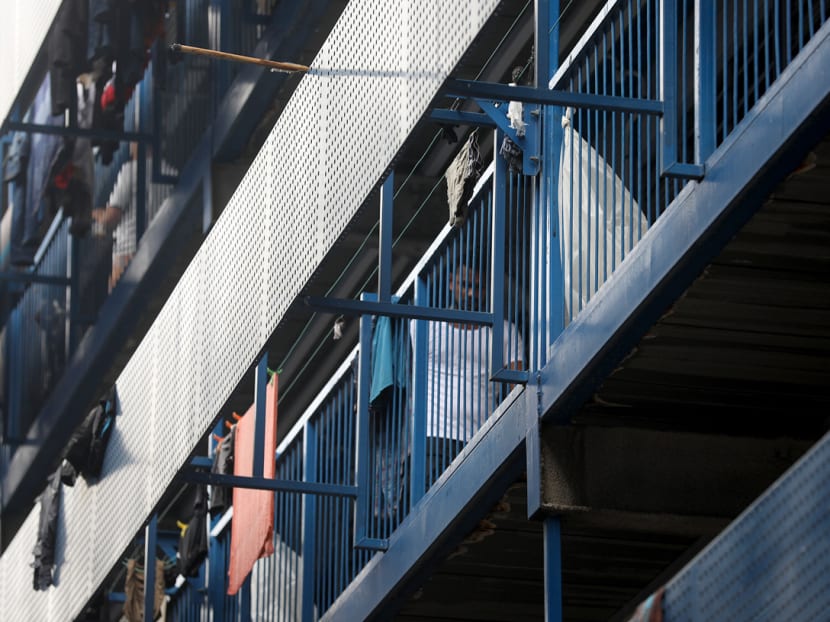Covid-19: Dorm operators must put in place strict measures, movement curbs for foreign workers to gradually return to work
SINGAPORE — As economic activity gradually ramps up after the circuit breaker period, employers and dormitory operators must put in place measures to keep migrant workers safe in their accommodation, the Ministry of Manpower (MOM) said on Friday (May 15).

For starters, workers who have recovered from Covid-19 or tested negative will stay in specific blocks within the dormitories that are dedicated to housing them, said Ms Chew Ee Tien, the director of MOM’s foreign manpower unit.
SINGAPORE — As economic activity gradually ramps up after the circuit breaker period, employers and dormitory operators must put in place measures to keep migrant workers safe in their accommodation, the Ministry of Manpower (MOM) said on Friday (May 15).
For starters, workers who have recovered from Covid-19 or tested negative will stay in specific blocks within the dormitories that are dedicated to housing them, said Ms Chew Ee Tien, the director of MOM’s foreign manpower unit.
Ms Chew added that these blocks will be segregated from the rest of the dormitory facility.
More than 2,000 beds in these blocks have been created to house recovered patients, said MOM in a press statement on Friday.
It added that by Monday, all 43 dormitories are expected to have about 5,400 beds.
During the multi-ministry taskforce conference on Friday, Manpower Minister Josephine Teo said the authorities are now ready to enter the “third phase” of curbing the spread of the virus among migrant workers.
“(This) is focused on not just helping the workers to recover but also getting them ready to support their employers when the conditions allow for businesses to restart,” she said.
Speaking during a media briefing held via the Zoom video conferencing platform, she added that dormitory operators will also have to put in place a system to track workers’ entries and exits from the accommodation.
She added that workers should be allowed to leave the dormitories only for the purpose of work and must return to their own blocks after that.
Large group gatherings will not be allowed within the dormitories and within each block, residents will have to stay on their own levels and in their own rooms, and not move freely to other levels, Ms Chew said.
Workers living in the same room will be assigned specific showers and toilets. Those living in each room will also be assigned stoves they can use in the communal kitchens, she added.
The dormitories will have to come up with scheduled time slots for the use of communal facilities such as the kitchen and outdoor recreational areas in order to maintain safe distancing.
Minimarts, canteens and shops can remain open but only for contactless ordering, Ms Chew added.
And dormitory operators will have to work with employers to work out designated and segregated pick-up and drop-off times and areas for the workers.
Ms Chew added that MOM will remain vigilant in seeking to pick up any new Covid-19 cases among the migrant worker population and isolating such cases quickly.
Dormitory residents will be tested regularly for Covid-19 and they will have to report their temperature, oxygen level and heart rate daily.
She said MOM will also ensure that workers have timely access to medical support from onsite or regional medical posts as well as tele-kiosks.
Explaining the rationale for the move, Mrs Teo said: “The dormitories were designed for communal living, where the workers socialise and interact closely on a day-to-day basis. Going forward, we will have to see how best to make adjustments.
“Safe living and safe working are some of the most important things that we need to do to try to prevent the risk of recurrent transmission. We cannot eliminate the risk completely, but we can try to reduce it as much as possible.”






